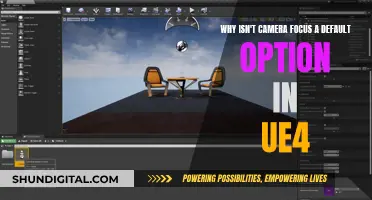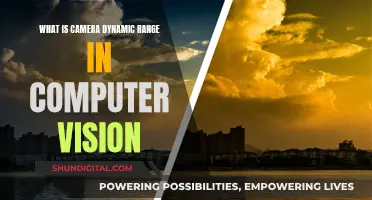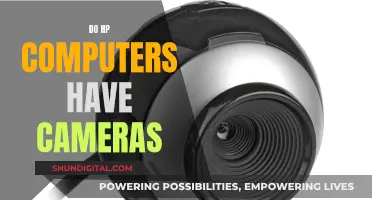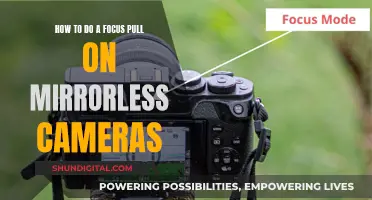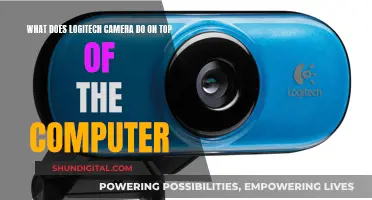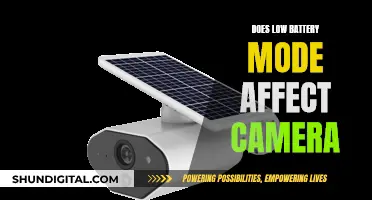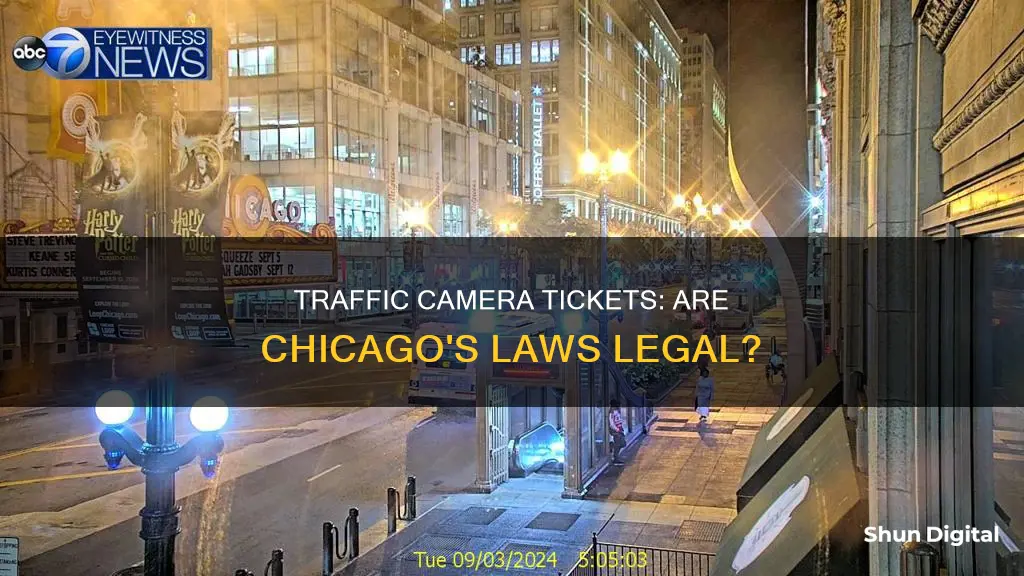
Chicago's traffic camera system has been a topic of debate in recent years, with questions arising over its legality, effectiveness in improving road safety, and impact on different racial groups. The system, which includes red-light and speed cameras, is designed to enhance road safety by reducing dangerous crashes and encouraging drivers to obey traffic rules. However, the high number of tickets issued, especially in majority-Black and Latino areas, has led to concerns about racial disparities and the city's revenue-generating motives. While the cameras have been credited with reducing specific types of crashes, the financial burden on low-income residents and the lack of infrastructure improvements in these areas have been criticized.
| Characteristics | Values |
|---|---|
| Purpose | To increase safety on Chicago streets by reducing the most dangerous types of crashes at the most dangerous intersections |
| Start Date | 2003 |
| Intersections Covered | 149 |
| Camera Type | Red Light Camera |
| Camera Function | Takes multiple images of vehicles when they drive through a red light |
| Ticket Value | $100 (doubles if late) |
| Ticket Payment Period | 30 days |
| Ticket Search | Possible by entering license number or license plate number |
| Footage Availability | 24-hour stream available for 30 days; violation footage available for 2 years |
| Ticket Dispute | Possible by requesting an in-person hearing date by phone |
| Ticket Impact on Driving Record | No impact |
| Ticket Impact on Insurance Rates | No impact |
What You'll Learn

Chicago's red-light cameras: are they effective?
Chicago's Red Light Camera Enforcement Program was designed to improve safety on the city's streets by reducing the most dangerous types of crashes, specifically angle crashes, also known as "T-bone" crashes, which often result in serious injuries or fatalities. The program also aims to reduce crashes involving pedestrians and bicyclists, which are also frequently dangerous.
The program was implemented in 2003, initially covering just two intersections: Peterson and Western, and 55th and Western. Since then, more intersections have been added based on crash frequency, type, and severity, as well as community input and Aldermanic support. As of January 2021, 149 intersections are enforced through the program, with cameras enforcing two of the intersection approaches in most cases.
The effectiveness of the program has been evaluated through crash statistics and academic studies. Between 2005 and 2022, crashes of all types decreased at intersections with red light cameras, indicating an improvement in overall safety:
- Dangerous right-angle ("T-bone") crashes decreased to 55%
- All crashes at red light camera intersections were reduced to 56%
- Crashes resulting in injuries decreased to 41%
- Pedestrian crashes decreased to 42%
- Rear-end crashes decreased to 70%
An academic study by Northwestern University's Transportation Center also supports the effectiveness of the program. Their report, "Chicago Red Light Camera Enforcement: Best Practices & Program Roadmap", provides insights into the program's impact and suggests strategies for further improvements.
The Red Light Camera Enforcement Program in Chicago appears to be effective in achieving its goal of enhancing road safety and reducing dangerous crashes, particularly the most severe types of crashes. The combination of crash data analysis, community input, and academic research supports the notion that these cameras play a crucial role in discouraging motorists from running red lights and improving safety at intersections.
The Evolution of Movie Cameras: Where Were They Made?
You may want to see also

How to dispute a ticket
Step 1: Review the Evidence
You have 21 days to contest a ticket, so act fast. Check that all the information on the ticket is correct. You should be given access to all the evidence, including any photos or videos. Check that you can tell the make of the vehicle in the images—if not, this may be part of your defense. Also, look for any reasons or excuses for the incident, such as an emergency vehicle or roadworks.
Step 2: Contest the Ticket
You can contest the ticket by mail, online, or by requesting an in-person hearing. The City of Chicago has a list of allowed defenses that you should review when planning your defense. You can request an in-person hearing by calling the City of Chicago's Ticket Helpline at 312-744-7275.
Step 3: Plead Not Guilty
If you want to dispute the ticket, you must plead not guilty. You can do this by mail or online if possible, or you may have to appear in traffic court. Check your citation and plead not guilty before the deadline, which is typically within 30 days of receiving the ticket.
Step 4: Request a Formal Hearing
When you plead not guilty, demand a full formal hearing or trial. You may also have to attend other hearings, such as a pre-trial hearing or mediation, but don't accept anything less than a full dismissal of your ticket.
Step 5: Research Applicable Law
Look for cases in Chicago or Illinois about traffic cameras and see if any appellate court decisions have ruled on the legality of traffic camera tickets. For example, some states have specific rules about where warning signs must be posted for cameras. If the warning signs were obscured or not present, you would have a defense.
Step 6: Prepare Your Defense
Arrive at the courthouse on the day of your hearing with copies of any documents you intend to use as evidence. Make sure you are well-organized and present yourself professionally. Treat the judge and courthouse staff with respect.
Step 7: Present Your Case
Listen while the prosecutor presents their case and then present your defense. You can challenge the admissibility of the photograph as hearsay, assert your right to confront witnesses, or dispute the authenticity of the photograph. If the photos are clear and admitted as evidence, you can still argue that the prosecution cannot prove it was you driving the car or that the traffic light was functioning properly.
Charging the Disney Camera: Hannah Montana's Guide
You may want to see also

The consequences of ignoring a ticket
Increased Fines
If you don't pay your traffic ticket by the due date, you will likely face increased fines. In some cases, the fines may double after the payment deadline has passed. This can turn a relatively manageable expense into a significant financial burden.
Vehicle Seizure
The City of Chicago has the authority to boot and seize your vehicle if you fail to respond to or pay your ticket on time. This means that you could lose your means of transportation and incur additional costs associated with vehicle impoundment and retrieval.
License Suspension
While this consequence was dropped in July 2021, it is important to note that, in the past, ignoring a traffic ticket in Chicago could have resulted in a suspended license. This policy change, however, does not negate the other serious consequences that can still occur.
Warrants and Legal Charges
In extreme cases, failure to address a traffic ticket can result in legal consequences, including misdemeanor charges and an arrest warrant. If arrested, you may face jail time or community service, further complicating your life and leaving a lasting mark on your criminal record.
Higher Insurance Costs
Ignoring a traffic ticket can also lead to points being added to your driving record. These points can result in increased car insurance costs, affecting your finances long after the initial ticket was issued.
Impact on Your License
The accumulation of points on your driving record can also increase the likelihood of license suspension or revocation. This means that, even if you avoided a suspended license by ignoring the initial ticket, the resulting points could eventually lead to the same outcome.
Administrative Burden
When you ignore a traffic ticket, you create more work for yourself in the long run. By failing to address the issue promptly, you may have to deal with notices, warnings, and other administrative tasks that could have been avoided with timely action.
In conclusion, while it may be tempting to ignore a traffic ticket, the potential consequences outlined above can have significant financial, legal, and administrative impacts on your life. It is always best to address a citation promptly and take the necessary steps to resolve the issue.
Troubleshooting a Sanyo Camera That Won't Charge
You may want to see also

The racial disparities in ticketing
Chicago's traffic cameras disproportionately ticket Black and Latino drivers, with households in majority Black and Hispanic ZIP codes receiving tickets at around twice the rate of those in white areas between 2015 and 2019. This has resulted in over half a billion dollars in penalties over the last 15 years, leading to thousands of vehicle impoundments, driver's license suspensions, and bankruptcies.
The coronavirus pandemic widened these ticketing disparities, with Black and Latino workers being far less likely to have jobs that allow them to work remotely, forcing them to drive more often. In 2020, the ticketing rate for households in majority-Black ZIP codes jumped to more than three times that of households in majority-white areas.
Similar racial and income disparities in camera ticketing have been documented in other cities across the United States, such as Rochester, New York, Miami, and Washington, D.C.
While Chicago officials attribute these disparities to a focus on safety and a need to curb dangerous driving, critics argue that the cameras are primarily a revenue generator, bringing in over $1.3 billion since their installation.
There are several factors that contribute to the racial disparities in ticketing:
- Road Design and Infrastructure: ProPublica found that wider streets with more lanes in majority-Black and Latino neighborhoods contribute to speeding and higher ticketing rates. Additionally, these areas often have fewer pedestrians, vacant lots, and industrial zones, providing fewer visual cues to encourage drivers to slow down.
- Expressways and Crime Rates: A study by the University of Illinois at Chicago found that red-light cameras within close proximity to expressways and areas with high rates of violent crime issued more tickets. Black neighborhoods are more likely to be located near expressways, and drivers in these areas may rush through intersections due to safety concerns.
- Occupation and Retail Deserts: Factors such as occupation, limited access to public transportation, retail deserts, and personal safety concerns may result in Black and Latino residents spending more time driving, increasing their exposure to traffic cameras.
- T-bone Crashes: Chicago officials defend the use of red-light cameras as a safety measure, particularly in reducing "T-bone" crashes, which are more likely to result in serious injuries or fatalities.
To address these disparities, the city of Chicago has implemented the Clear Path ticket equity initiative, which offers residents with lower incomes a 50% discount on traffic tickets and includes a ticket debt forgiveness program. However, critics argue that the city needs to focus more on improving infrastructure and making streets safer for all users, rather than relying solely on punitive measures.
Updating Adobe Camera Raw: A Step-by-Step Guide
You may want to see also

The legal status of traffic camera tickets
Traffic camera tickets are legal in Chicago, and they have been since the Red Light Camera Enforcement Program was introduced in 2003. The program was designed to improve safety on the streets of Chicago by reducing the number of dangerous crashes at intersections.
High-resolution digital cameras are integrated with the traffic signal system and use 3D radar to detect vehicles approaching the intersection. When the cameras identify a vehicle entering the intersection after the signal has turned red, they record both still photographs and video footage of the vehicle, including the rear license plate. The recorded images are reviewed by the camera equipment vendor to verify that the images and license plate are legible and that a violation has occurred. The images are then forwarded to the City's Department of Revenue for a second review and, if confirmed as a violation, a ticket is issued to the registered owner of the vehicle.
In Chicago, you have 21 days to pay or contest a ticket. Failing to do so will result in a late payment fee, doubling the amount owed. If the ticket remains unpaid, further penalties can be imposed, including the towing of your vehicle.
Yes, if you think you've received a red light or speed violation, you can check online. The website allows you to search for parking tickets, view photos and videos of violations, and contest the ticket if necessary. The 24-hour stream of the red-light intersections is available for 30 days, while footage of violations can be viewed for up to two years.
Yes, in Chicago, signs are posted on all approaches to an intersection where automated red light cameras enforce. The City of Chicago also provides real-time updates on traffic, speed camera locations, and congestion information through the Chicago Traffic Tracker.
There are limited qualifying defenses available if you wish to contest a red-light ticket. Additionally, red-light camera tickets are not considered moving violations and will not appear on your driving record or affect your insurance rates. They are treated similarly to parking tickets.
While the system is intended to improve safety, there have been concerns about the disproportionate impact of ticketing on Black and Latino motorists in Chicago. A ProPublica analysis found that households in majority Black and Hispanic ZIP codes received tickets at a higher rate compared to those in white areas between 2015 and 2019. This has resulted in financial burdens and consequences such as vehicle impoundments, driver's license suspensions, and bankruptcies for residents of these communities.
Furthermore, there are mixed opinions on the effectiveness of the system in reducing crashes. While some studies suggest that red-light cameras help reduce serious accidents, critics argue that the cameras are more of a revenue generator for the city than a public safety solution.
The Evolution of Rechargeable Camera Batteries
You may want to see also


